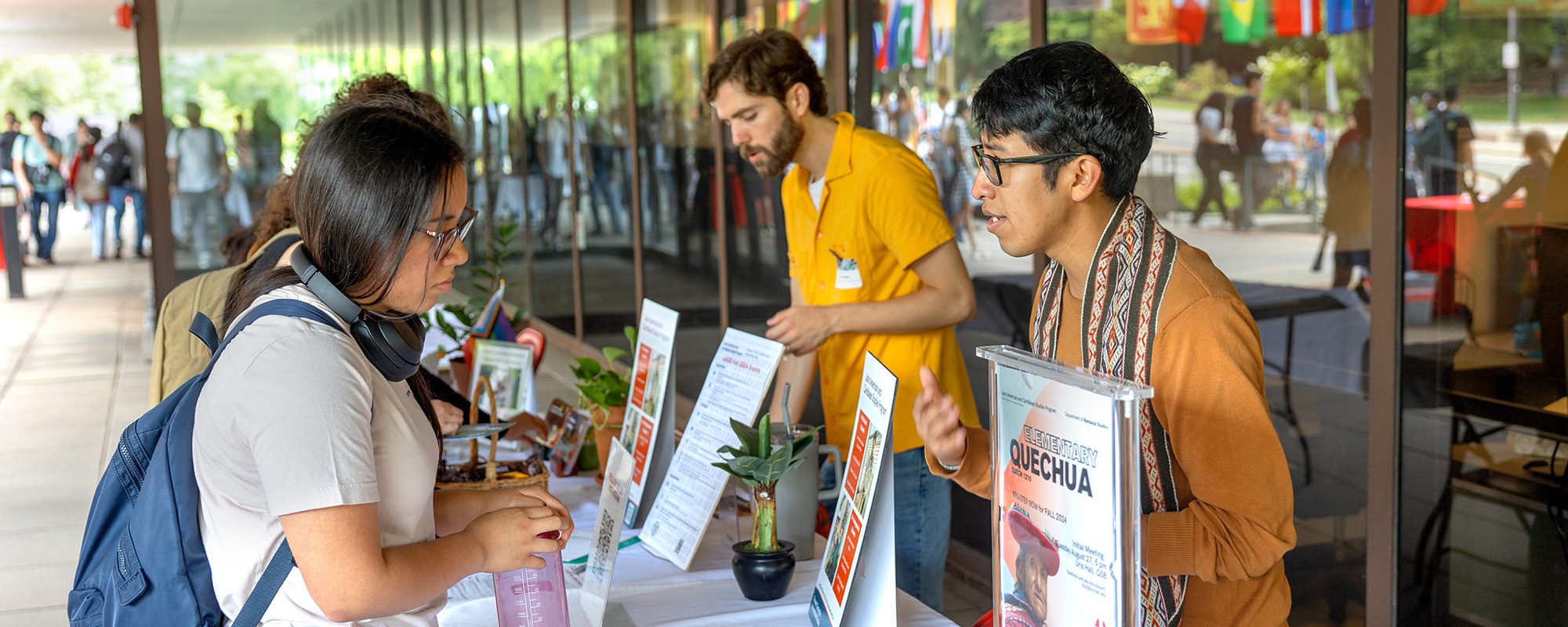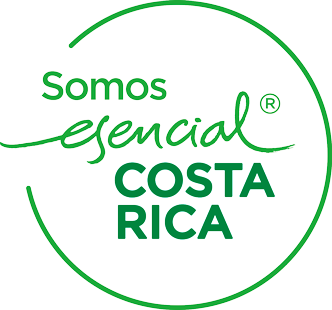¿Qué opciones tienen los estudiantes atletas después de terminar la universidad?
Una de las preocupaciones más frecuentes que surgen en las familias de estudiantes atletas que van a iniciar su proceso de estudiar en Estados Unidos es: ¿Qué pasa después de que culminan la etapa universitaria en el extranjero?
Por suerte las alternativas son variadas…
Una vez que el estudiante finaliza su etapa universitaria, puede buscar opciones laborales, académicas y deportivas tanto en su país de origen, como en otros países del mundo o incluso establecerse dentro de los Estados Unidos.
Caso académico y laboral
Una vez que el estudiante finaliza sus estudios universitarios en una institución estadounidense de cuatro años obtiene un “undergraduate degree”, también conocido como el título de bachillerato. Con este documento es posible que el estudiante atleta regrese a su país de origen o bien, migre a otro país ya sea a trabajar o a continuar sus estudios por medio de una maestría.
Para ello, el título se debe convalidar dentro del país al que el estudiante se dirija y por eso es importante conocer la legislación del mismo para tener claridad sobre los pasos y requerimientos necesarios para lograrlo. Por ejemplo, en el caso de Costa Rica, donde Propella tiene sus bases, el proceso de homologación del título universitario se lleva a cabo a través de la página web oficial de la Oficina de Reconocimiento y Equiparación de Grados y Títulos del Consejo Nacional de Rectores (Conare), donde se pueden encontrar las indicaciones, los requisitos, documentos, y el paso a paso del proceso de homologación.
Si bien puede ser un proceso tedioso, en este momento se encuentra en la corriente legislativa un proyecto de ley impulsado por el Ministerio de Educación Pública y seis diputados del congreso para simplificar el reconocimiento y equiparación de títulos universitarios obtenidos en instituciones extranjeras.
Ahora bien, ¿qué sucede con los “Associate Degrees”/títulos obtenidos en universidades de 2 años?
Nuevamente, depende de la legislación de cada país. Por ejemplo, en Costa Rica este título no es reconocido y por ende no se puede convalidar. En este caso, los estudiantes tienen dos alternativas según su caso particular: pueden regresar al país y convalidar esos créditos/cursos que se obtuvieron en la institución americana para finalizar la carrera y obtener el bachillerato y la licenciatura en una universidad nacional, o pueden permanecer en Estados Unidos por medio de transferencia. Esto quiere decir que una vez que finalicen sus dos años y obtengan este título, pueden buscar la opción de transferirse a una universidad de cuatro años, hacer los dos años restantes y obtener el bachillerato.
Para lograrlo, es importante que el estudiante destine sus dos primeros años fortaleciendo su perfil académico y deportivo, de esta manera le será más factible ingresar a una buena universidad de cuatro años en el futuro.
Caso deportivo
Por otra parte, dependiendo del nivel deportivo y sus objetivos a futuro, el estudiante atleta puede regresar a su país de origen a buscar la oportunidad de profesionalizarse en su disciplina deportiva, ya sea en un equipo de primera, segunda o tercera división, según funcione la liga competitiva de cada deporte en el país.
¿Permanecer en Estados Unidos?
Si, es una opción. En caso de que la preferencia sea permanecer en Estados Unidos, también hay una serie de alternativas que se pueden aprovechar. En cuanto al área de estudio, también se pueden buscar opciones de maestrías según los intereses de cada estudiante y dependiendo nuevamente del área en la cual se quiere especializar.
Con respecto al área laboral, sabemos que la condición migratoria de los estudiantes es compleja y es un tema que no puede tomarse a la ligera, por lo que siempre se recomienda al estudiante atleta hacer una revisión adicional de información y requisitos según su caso particular.
Ahora bien, los estudiantes universitarios con visa F1, pueden optar por el Optional Practical Training (OPT), un permiso de trabajo de 12 meses al que pueden aplicar antes o después de finalizar la carrera con el objetivo de obtener experiencia práctica relacionada a su campo de estudio. Los estudiantes de carreras de áreas STEM (Ciencia, Tecnología, Ingeniería y Matemática) pueden optar por una extensión del permiso de 24 meses.
Por otro lado, se puede buscar la posibilidad de obtener la visa H-1B o H-3. Por su parte, la visa H-1B es un permiso temporal de trabajo que permite a las personas extranjeras laborar en ocupaciones que requieren de habilidades de alto grado respaldadas por un título universitario, y las visas H-3 son otorgadas a personas no inmigrantes y permiten a extranjeros ingresar a los Estados Unidos con el propósito de participar en procesos de capacitación.
Otra alternativa para permanecer en Estados Unidos es por medio del deporte. En Estados Unidos el deporte está muy profesionalizado, por lo que dependiendo del rendimiento deportivo del atleta, puede buscar la oportunidad de ser reclutado por un equipo importante según la disciplina que practique.
En caso de que el estudiante atleta no desee continuar practicando de manera competitiva su disciplina, pero si quiere seguir ligado a ella de alguna manera, puede convertirse en entrenador de algún programa deportivo de una institución americana. Existen muchos programas que están buscando voluntarios e inclusive están dispuestos a ofrecer una oportunidad laboral para satisfacer sus necesidades.
Las opciones de éxito después de obtener un título universitario en una institución estadounidense son muy variadas y contrario a las preocupaciones que pueden surgir, el título universitario estadounidense podría abrir oportunidades y experiencias únicas a quien tenga la dicha de obtenerlo.
One of the most frequent concerns that arise within the families of student athletes who are going to begin their process of studying in the United States is: What happens after they finish college abroad? Luckily, the alternatives are varied...
Once the student finishes his or her university stage, they can look for work, academic and sports options in their country of origin, as well as in other countries around the world or even settle within the United States.
Academic and employment status
Once a student completes the undergraduate studies at a four-year U.S. institution, they obtains an "undergraduate degree", also known as a baccalaureate degree. With this document it is possible for the student athlete to return to his or her country of origin or migrate to another country either to work or to continue studies through a master's degree.
For this, the degree must be validated within the country to which the student is going and that is why it is important to know the legislation of the country to have clarity on the necessary steps and requirements to achieve it.
For example, in the case of Costa Rica, where Propella has its bases, the process of university degree recognition is carried out through the official website of the Office of Recognition and Equalization of Degrees and Titles of the National Council of Rectors (Conare), where you can find the indications, requirements, documents, and the step-by-step of the recognition process.
Although it can be a tedious process, a bill promoted by the Ministry of Public Education and six congressional deputies to simplify the recognition and equalization of university degrees obtained in foreign institutions is currently in the legislative stream.
Now, what happens with the Associate Degrees / degrees obtained in 2-year universities?
It depends again on the legislation of each country. For example, in Costa Rica this degree is not recognized and therefore cannot be validated. In this case, students have two alternatives depending on their particular case: they can return to the country and validate those credits/courses that were obtained in the American institution to finish the degree and obtain the bachelor's degree in a national university, or they can remain in the United States through transfer.
This means that once they finish their two years and obtain this degree, they can seek the option to transfer to a four-year university, do the remaining two years and obtain the baccalaureate degree. To achieve this, it is important that students spend their first two years strengthening their academic and athletic profile, thus making it more feasible for them to enter a good four-year university in the future.
Sports case
On the other hand, depending on the athletic level and individual goals, student athletes may return to their country of origin to seek the opportunity to become professional in their sport.
Staying in the United States?
Yes, it is an option. In case the preference is to remain in the United States, there are also a number of alternatives that can be taken advantage of.
Regarding the area of study, you can also look for master's degree options according to your interests and depending again on the area in which you want to specialize.
With respect to the labor area, we know that the immigration status of students is complex and is an issue that cannot be taken lightly, so it is always recommended to make an additional review of information and requirements according to the particular case.
However, undergraduate students with an F1 visa can opt for Optional Practical Training (OPT), a 12-month work permit that they can apply for before or after completing their degree in order to obtain practical experience related to their field of study.
Students in STEM (Science, Technology, Engineering and Mathematics) majors can opt for a 24-month permit extension. On the other hand, the possibility of obtaining the H-1B or H-3 visa may be sought.
The H-1B visa is a temporary work permit that allows foreigners to work in occupations that require high-level skills backed up by a college degree, and H-3 visas are granted to non-immigrants and allow foreigners to enter the United States for the purpose of participating in training processes.
Another alternative to stay in the United States is through sports. In the United States, sports are highly professionalized, so depending on the athlete's sports performance, he/she may seek the opportunity to be recruited by an important team according to the discipline.
In case the student athlete does not wish to continue practicing competitively his or her discipline, but wants to remain linked to it in some way, they can become a coach in a sports program of an American institution. There are many programs that are looking for volunteers and are even willing to offer a job opportunity to meet their needs.
The options for success after earning a college degree at an American institution are very varied and contrary to the concerns that may arise, the American college degree could open up unique opportunities and experiences to whoever is fortunate enough to earn it.

June 2, 2023









